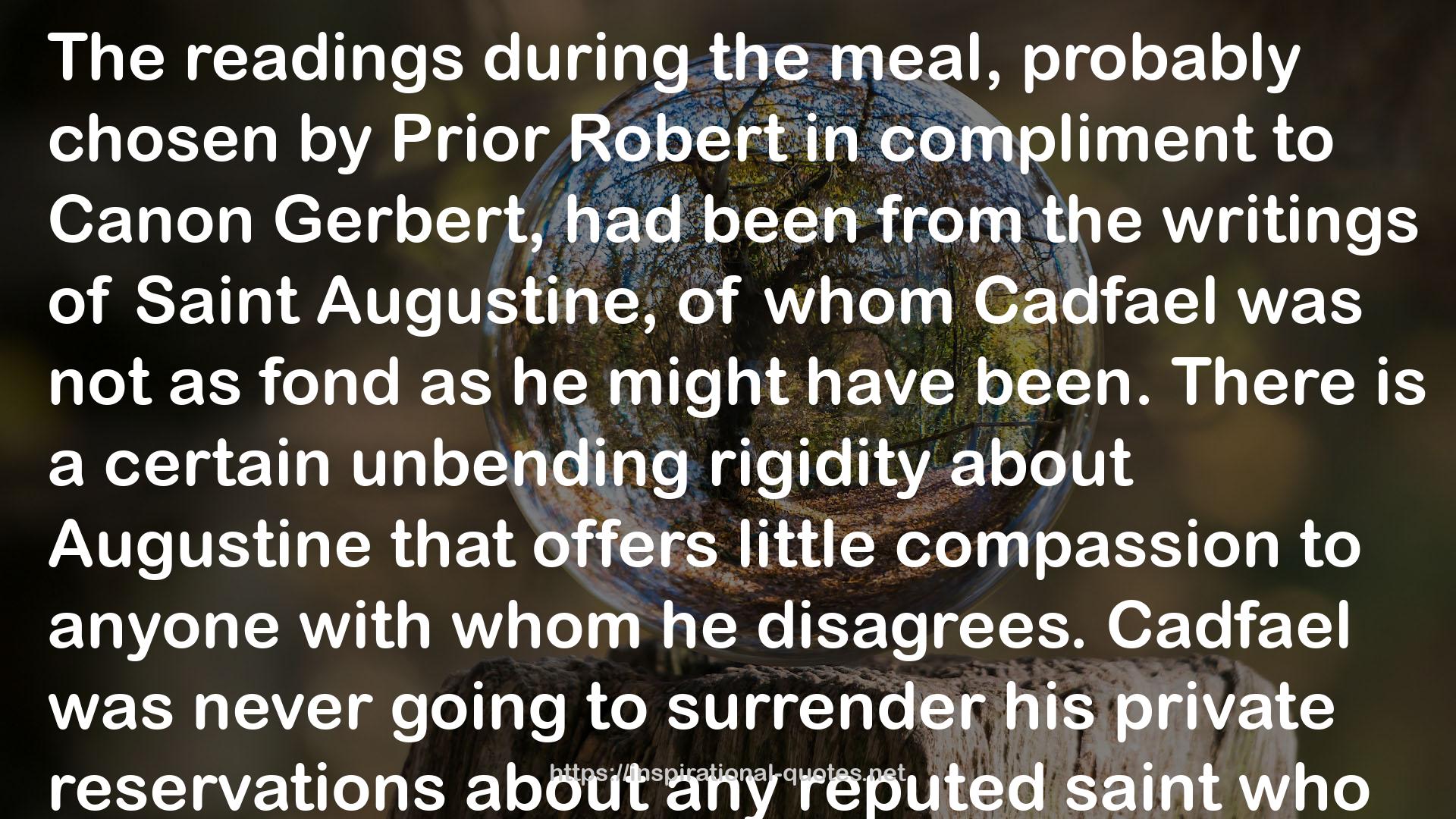" The readings during the meal, probably chosen by Prior Robert in compliment to Canon Gerbert, had been from the writings of Saint Augustine, of whom Cadfael was not as fond as he might have been. There is a certain unbending rigidity about Augustine that offers little compassion to anyone with whom he disagrees. Cadfael was never going to surrender his private reservations about any reputed saint who could describe humankind as a mass of corruption and sin proceeding inevitably towards death, or one who could look upon the world, for all its imperfections, and find it irredeemably evil. In this glowing evening light Cadfael looked upon the world, from the roses in the garden to the wrought stones of the cloister walls, and found it unquestionably beautiful. Nor could he accept that the number of those predestined to salvation was fixed, limited and immutable, as Augustine proclaimed, nor indeed that the fate of any man was sealed and hopeless from his birth, or why not throw away all regard for others and rob and murder and lay waste, and indulge every anarchic appetite in this world, having nothing beyond to look forward to? "
― Ellis Peters , The Heretic's Apprentice (Chronicles of Brother Cadfael, #16)
